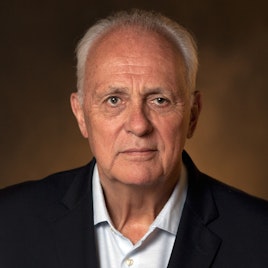Open Society’s New Operating Model
By Mark Malloch-Brown
You may have recently read that the Open Society Foundations are undergoing significant changes, including a new operating model and head count reductions. I am writing to share with you details about those changes and what they mean for you. Having seen firsthand on my travels as president the extraordinary work you do, I am committed to providing you with as much relevant information as possible—now and over the coming months.
Technological, environmental, political, and socioeconomic shifts are challenging open society ideals around the world. This flux demands that we reimagine our philanthropy. Over the past years we made progress in retooling the organization, but our newly constituted Board assessed that while those changes were important steps forward, we needed to go further. So having reviewed several options, on June 28 it made a unanimous decision to adopt a new operating model.
Before I outline that model, the details of which still remain subject to consultation with staff labor groups, here are some important reassurances. First, this is not about belt-tightening. Open Society is fortunate to be in a strong financial position, but we need new ways of working to realize our mission. Second, nor is this about centralizing our activities. Quite the opposite, in fact: our new opportunity teams will be dispersed around the globe and work closely with partners on the ground. Third, nor is this about wholesale abandonment of work already underway. We will honor existing financial commitments and, while we will not renew some of these, we expect to incorporate others into the new portfolio.
The new model will see the majority of our grant making organized around specific opportunities for impact, to be determined over the coming months. It will free us from annual strategy and budget cycles, allow us to pursue campaign arcs of different durations, and make us more responsive to a rapidly changing world. This will often mean multiyear commitments enabling our partners to invest in ambitious, long-term action—with clear, measurable goals that would not be met without Open Society’s involvement.
In some cases our commitments will span multiple geographies. But we will remain spread out, with staff drawn from and based in countries around the world; the Board has recognized that opportunities for significant change are often at the local level and that, as such, our new model’s success depends on local knowledge and legitimacy. We will also be maintaining pools of funding with which to sustain certain existing relationships critical to our mission and to respond to urgent developments as they arise.
A new Executive Leadership Team, comprised of three colleagues and me, has taken on overall responsibility for this new model. As vice presidents, Pedro Abramovay and Binaifer Nowrojee share responsibility for programming. And as vice president and chief operating officer, Sandra Breka oversees operations, change management, and strategy and impact support. Other senior managers well-known to you will continue to carry out their existing roles within the wider Management Committee. Where there have been staff changes, or departures, we have announced these separately. Full details of our new leadership structure will be published on our website in due course.
Working with the vice presidents for programming will be a small group of managing directors, to be selected in the coming weeks. Below them, directors based around the world will lead bespoke teams built around specific opportunities for impact, supplanting prior teams based only on particular geographies or themes. Our goals will determine our team structures, rather than our structures determining our goals.
As we have already shared with staff, early estimates suggest that our new model will necessitate head count reductions of no less than 40 percent globally. That is painful news for all concerned. We are deeply proud of everything Open Society and its network have achieved in the past years. The cuts are not a reflection of that, but of a world in which we no longer enjoy the more favorable environment of the recent past and thus must change how we operate.
We are now moving to shift our work and spending as quickly as possible onto the new model, a transition which, I am sure you understand, needs to be conducted in a thorough and joined-up way over the second half of this year. We expect to limit grant making from October to the end of February 2024. Your points of contact at Open Society will provide further information as soon as they have it available to share. Please direct any urgent questions to them, while also bearing with all of us as we follow the proper processes to ensure success. Our objective is to end the years of uncertainty and move into the future with confidence.
I would like to conclude by stressing how grateful my colleagues and I are for everything you do for the causes of open society, democracy, and individual rights. I look forward to returning to you all with more details as soon as possible.

Until June 2024, Mark Malloch-Brown was president of the Open Society Foundations.